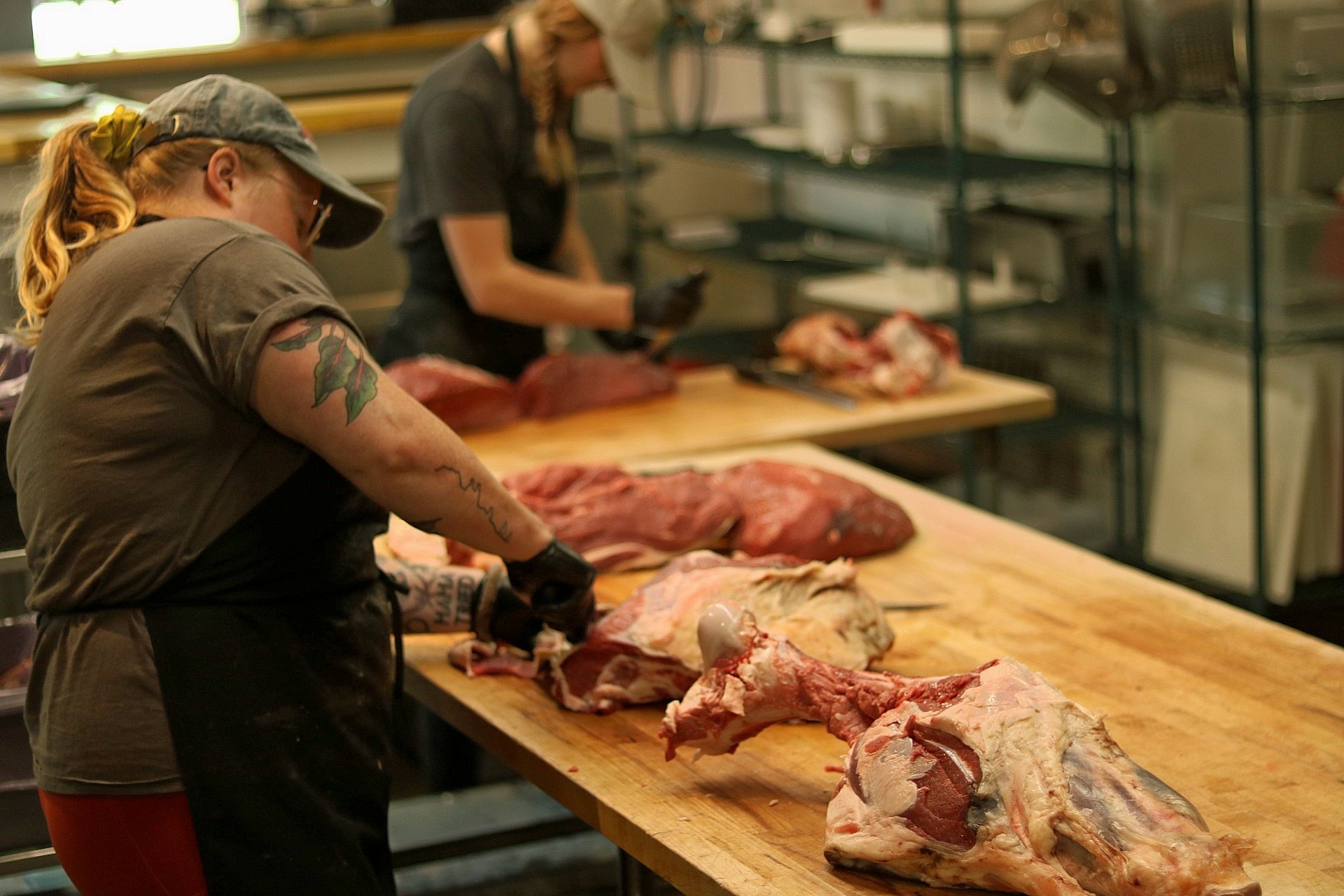
Butcher shops have a vital role to play in today’s age of consumers who are more conscious about where their food is sourced. They provide delicious, ethically produced meats and, by doing so, support sustainable agricultural methods. This article looks at the journey that meat takes from farm to plate and describes how butchers source their products while maintaining the highest quality standards and sustainability.
What Is The Value Of Sourcing?
To many, quality meat and its source are directly related. Knowing the origin and process of meat production can greatly influence your purchasing decision. Butcher shops emphasize traceability and transparency so clients know where their meat has been. This commitment to quality and ethical sources sets apart butcher shops from the larger supermarkets.
Building Relationships With Local Farmers
Butcher shop in Denver can ensure high-quality meat by building strong partnerships with local farmers. These partnerships are based upon mutual trust and shared standards for animal husbandry. By working closely with farmers, butcher shops can observe farming practices, animal welfare, and feed quality.
- Animal Welfare: Most butcher shops source their meats from farms that prioritize animal welfare. The animals are provided with enough space to move around and clean water. A natural diet, free of unnecessary antibiotics, is also offered. This not only leads to better meat quality but is also in line with many consumers’ ethical values.
- Sustainability: It is important to modern consumers. Butcher shops frequently partner with farmers engaged in sustainable agriculture practices, including rotational and organic farming. These methods promote biodiversity, improve soil health, and help reduce environmental impact.
Visiting Farms And Conducting Inspections
In order to ensure high quality, butchers often visit the farms of their partners on a regular basis. This allows butchers the opportunity to visit farms, to see how they operate, and to ensure that partners are adhering to their agreed standards. The inspections allow butchers to verify the health of farm animals as well as the environment.
- Quality Control: During farm inspections, butchers examine the animals for good health. Included in this is a thorough examination of animal living conditions, diet, and overall well-being. However, by following strict quality-control measures, butcher shops can guarantee the safest and most nutritious meat.
- Transparency and Trust: Regular visits to the farm also encourage transparency and confidence between butchers. The relationships between butchers and farmers are crucial for both to maintain the highest standards. Customers will feel more confident in their products when they see this level of transparency.
Processing And Butchering
Once they reach the proper standards, the animals are then transported to the facilities that will process them. However, many butcher shops will work together with processors from the local area to help reduce stress for animals and transport time. For the best quality meat, the processing phase must be done correctly.
- Slaughter with Humaneness: ethical butchers ensure that the animals are handled in a way that reduces pain and stress. The ethical aspect of this is important, but so is the fact that stressed animals may produce meat of a lower quality.
- Skilled Butchering: After processing the meat, it is taken to the butcher shop, where expert butchers are in charge. Their expertise allows them to reduce carcasses and cut the meat into various pieces. However, the skills of the butcher can have an impact on both the appearance and the quality of the meat.
Customers Are Educated
Shoppers at butcher shops can benefit from learning new things by talking to knowledgeable staff. However, butchers are able to provide information, such as recipes, cooking tips, or even details on the various cuts of meat. This element of learning enhances your shopping experience by allowing you to make educated decisions.
- Cooking Advice: However, cheers love to cook and are happy to share what they know. Customers can get advice from butchers on how to cook their cuts perfectly, making the most of what they have purchased.
- Sustainability Education: By educating consumers about the benefits of sustainable farming and ethical meat sourcing, butcher shops can promote a greater appreciation for quality meats and more responsible consumption.
Conclusion
Butcher shops are able to deliver meat safely from the farm to your table because of their dedication. Butcher shops maintain the highest levels of sustainability and quality by prioritizing their relationships with local farms, maintaining stringent quality control and educating their customers. The customers benefit from delicious meat sourced ethically so that they can serve their families.



